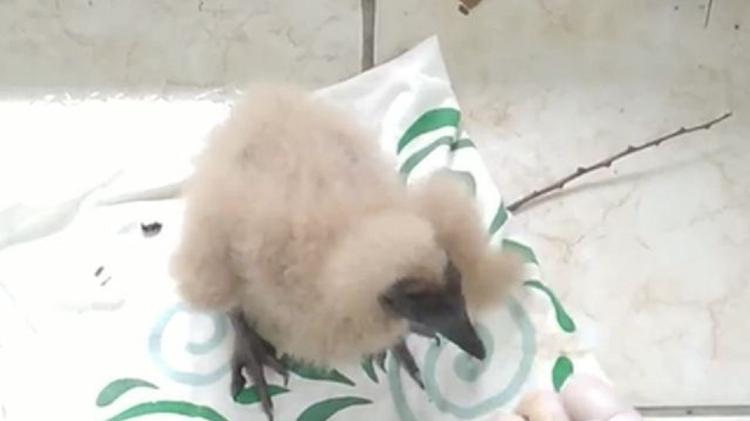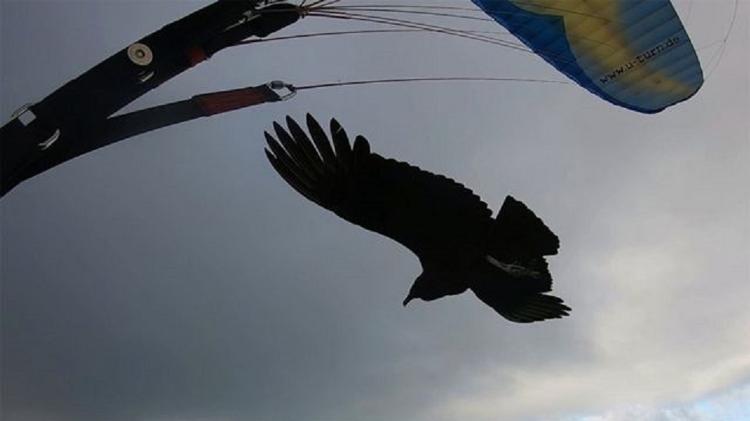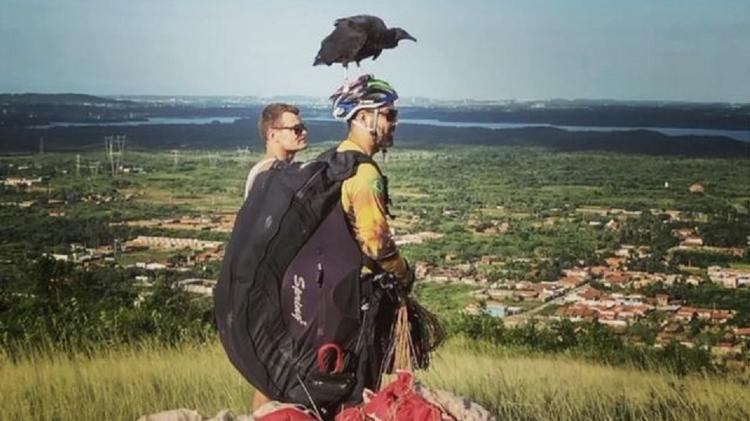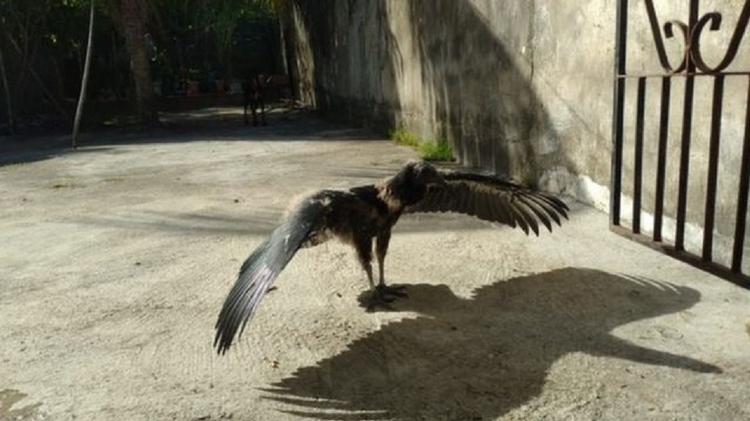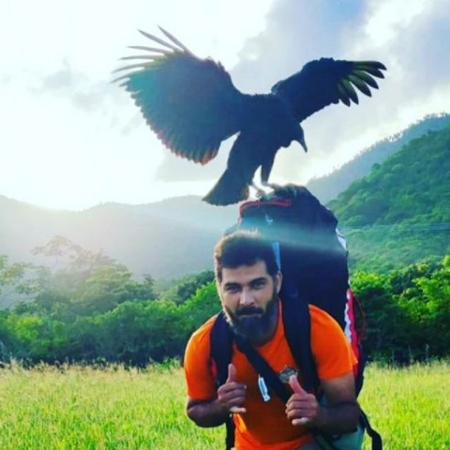Israel Mendes has always dreamed of crossing the skies of northeastern Brazil on a paraglider with a bird of prey. His dream came true thanks to a chance encounter with an orphaned vulture cub found in a dumpster.
Like paragliders, birds use thermals (spiral updraft of warm air) to gain height and glide long distances.
Now Mendes is almost inseparable from his new friend, whom he believes cannot survive.
A lost home and a ‘son’ gained
In December 2021, the Institute contacted the ecotourism guide living near Serra da Aratanha on the outskirts of Fortaleza. Pro-Silvestre.
The animal welfare NGO had a problem: a baby hawk was found in the dump and efforts to find its nest were unsuccessful. This meant that the young bird would die if left alone.
.He urgently needed a human caregiver.
Does Mendes, who lives near a nature reserve in the mountains, want to adopt the puppy?
“When I first saw him, he looked so bad that I thought he wouldn’t survive,” Mendes, 35, told the BBC.
“I’ve embraced it, including through legal process and enforcement, by the Brazilian environmental authorities. They thought that when the bird grew up, it would have plenty of room to roam.”
Seven months later, man and bird flew together several times as a result of an incredible story of human-animal bonding.
Flight lessons and fears
Mendes did more than feed and care for the bird he named Urú. He taught the animal to fly.
“Fish are born knowing how to swim, but birds need to grow their feathers and develop their bone structure before they can fly. Also, even though flying is instinctive for them, birds need to be encouraged to fly,” explains Mendes.
But Urú did not have a father or mother to push him out of the nest and flap his wings to avoid a bad fall. The vulture had to rely on his human teacher, who carried him to a higher point and encouraged him to fly.
“I would take Uru to the take-off point on a paraglider so he could feel the wind and begin to understand that he was made to fly,” Mendes says.
Classes included paragliding trips, in which he carried Urú in a specially adapted basket. Four months later, it was time for a longer, higher test.
While flying at an altitude of 400 meters, Mendes opened the basket door.
“He was already flying on his own and doing some ‘reconnaissance’. I knew I wasn’t putting him in danger.”
A few minutes later, Urú took off, but was immediately attacked by nearby adult vultures.
“I’ve discovered that vultures can be quite territorial,” says Mendes.
“They scared Uru and she disappeared for four days. I was devastated and very worried for her,” says Mendes.
He turned to social media to track down the bird.
Members of a local indigenous tribe, the Pitaguary, managed to locate Urú after he posted on WhatsApp about a “curious vulture” with them.
“I was relieved to find Uru. He squeezed my arm with his beak when I picked him up,” Mendes recalls.
“I don’t know if he’s still hungry or angry with me.”
Today, Urú is no longer lost. In fact, the vulture is sometimes very needy.
Mendes says Urú often follows him “like a dog” when he goes to work or meets up with friends, forcing him to resort to tricks.
“Sometimes I try to distract him with a piece of meat and then leave without making a sound, but then when I get on my bike I notice the shadow of a bird on the road,” he says with a smile.
According to Karine Montenegro, director of the Instituto Pró-Silvestre, this type of behavior is not uncommon among rescued vultures and humans, although these birds sometimes cling to humans as if they were their young.
“Somehow Uru had a very strong bond with Israel, which means the bird thought Israel was the father,” he told the BBC.
“There have been other cases of vulture adoption, and in all of them the bird maintained a much more distant relationship, sometimes barely recognizing its host and passing by for food,” says Karadağ.
make other trips
The problem with this type of connection is that animal experts still don’t know if this process is reversible – meaning that Urú and Mendes may have “merged for life,” as Montenegro believes.
Vulture’s new “dad” doesn’t seem to care. Mendes calls Urú “my son”, including the account he created for the bird on Instagram, which has more than 23,000 followers.
“Urú and my dog Marley are my only children,” Mendes jokes.
Recently the falcon has been confident enough to fly alongside some of Mendes’ colleagues, which has raised some concerns for Montenegro, especially after videos of Urú landing another glider went viral.
“I advised Israel to be very wary of Urú, because we don’t know if all the people who approach him are well-intentioned,” he said.
In many cultures, vultures have a bad reputation and are portrayed as menacing animals. In reality, they are natural waste shredders: scavengers that feed on the rotting flesh of dead animals and protect people from diseases transmitted by rotting flesh.
But birds of prey’s fear of humans has much more to do with other ways. The NGO Birdlife International says 14 of the 22 vulture species worldwide are at risk of extinction.
One of the biggest factors in population decline is mostly accidental poisoning, because vultures that feed on cattle carcasses treated with drugs such as anti-inflammatory are dangerous to other animals.
‘I will never abuse’
Another danger to raptors is exploitation, such as the controversial practice of “parahawking”, in which raptors are trained to guide paragliders to the best currents around them.
In recent years, this practice has become common in some countries, raising concerns about the treatment of birds.
However, Mendes says his relationship with the vulture, which he has been raising since he was a puppy, is quite different. “Uru strays in my backyard and only comes home when he wants to sleep next to me.”
“I will never use it,” she says. “Uru is not my pet. He is my son.”
– This text was published at https://www.bbc.com/portuguese/geral-62394545.
source: Noticias
[author_name]

